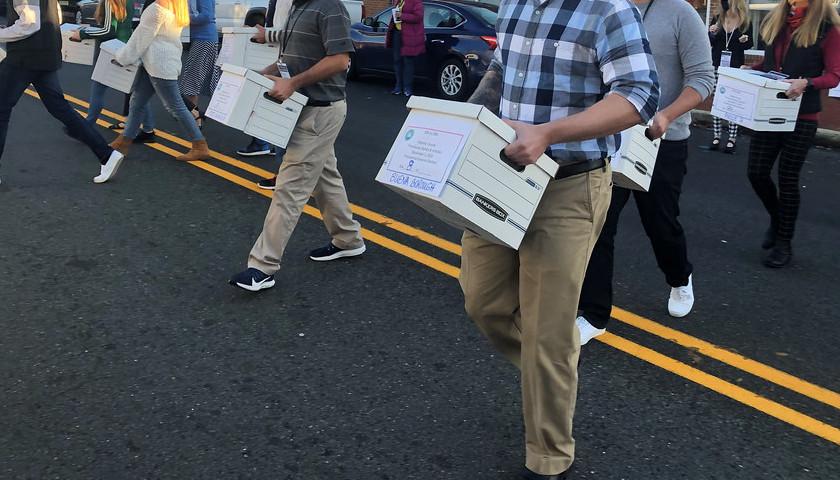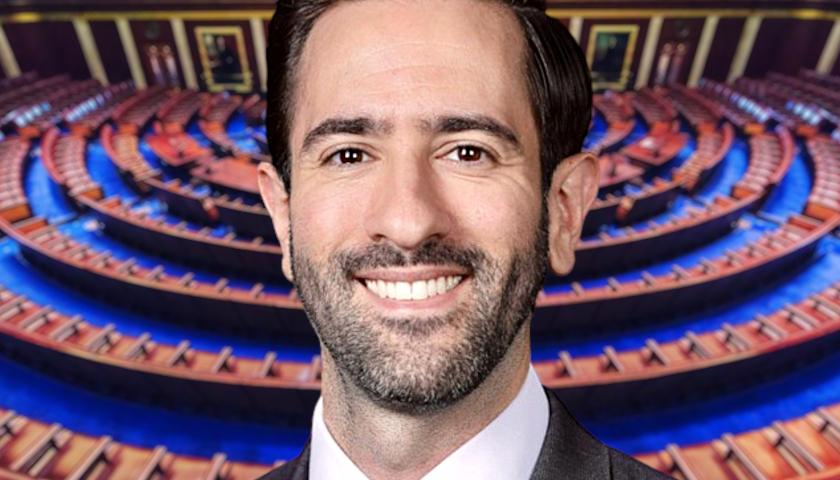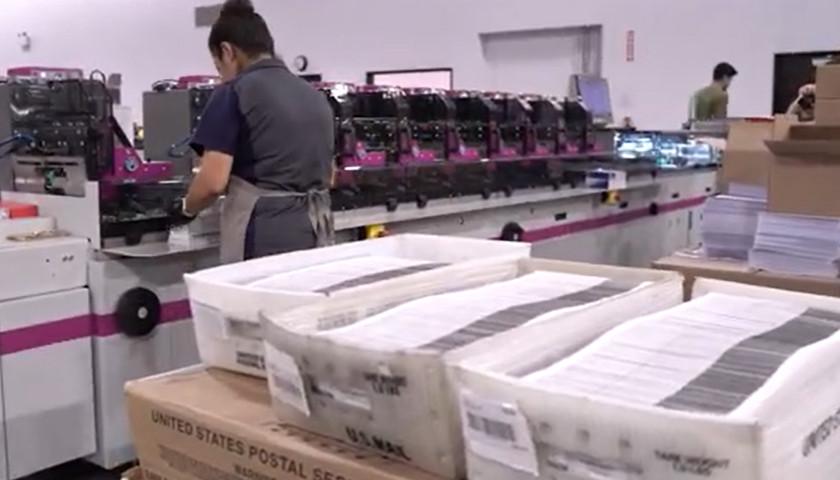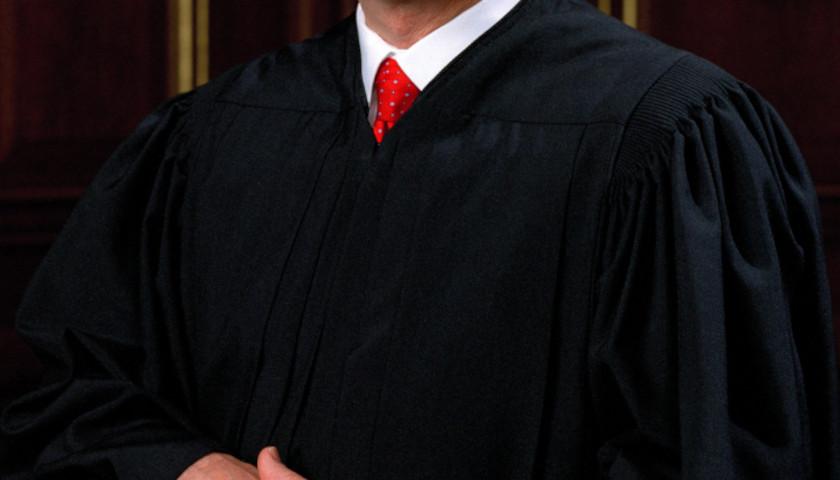Maricopa County Superior Court Judge Bradley Astrowsky issued a ruling Friday dismissing a complaint filed by We the People AZ Alliance (WPAA) that requested video surveillance from Runbeck Election Services. Although another judge ruled previously that the private company Cyber Ninjas was subject to public records requests due to conducting a partial audit for the Arizona Senate of the 2020 election, Astrowsky refused to apply the same reasoning to Runbeck, the vendor that processed all of Maricopa County’s mail-in ballots prior to signature verification.
The judge, appointed by Gov. Jan Brewer in 2012, has served on the bench for a little more than a decade. A court insider familiar with Judge Astrowsky’s decisions told The Arizona Sun Times he is well-known as a moderate in legal circles.
Abe Hamadeh’s War Room account posted their disappointment on X. Hamadeh is still appealing his election loss by 280 votes in the attorney general’s race, citing evidence of votes that were not counted which emerged after his trial. “A court ruled that Runbeck, a 3rd-party vendor, has no obligation to be transparent with Arizona voters,” the account said. “CD8 candidate & AZ Speaker of the House Ben Toma’s brothers serve on a board with Runbeck’s COO. These conflicts of interest are why Arizonans lost faith in their elections.”
A court ruled that Runbeck, a 3rd-party vendor, has no obligation to be transparent with Arizona voters.
CD8 candidate & AZ Speaker of the House Ben Toma’s brothers serve on a board with Runbeck’s COO.
These conflicts of interest are why Arizonans lost faith in their elections. pic.twitter.com/pSFfZqdf9G
— Abe Hamadeh War Room (@AbeWarRoom) November 21, 2023
The brother of Speaker Ben Toma (R-Peoria) purchased a majority stake in Runbeck on August 18. Election integrity activists have expressed concern that this creates a conflict of interest, and will result in no legislation getting passed to fix problems regarding Runbeck. Kari Lake’s election contest litigation has focused heavily on the strange appearance of about 35,000 ballots at Runbeck lacking any chain of custody. Violating chain of custody is a class 2 misdemeanor. WPAA wanted access to the security video to determine if it would reveal information about the 35,000 ballots.
Runbeck whistleblower employees have come forward to talk about that and other alarming problems, such as employees allowed to bring their own ballots to the location. In a petition for review Lake filed with the Arizona Supreme Court, she stated, “A Runbeck whistleblower testified that Runbeck allowed employees to insert ballots into the system, which is illegal and further establishes COC violations.”
Both Hamadeh and Toma are running for Congress in CD8, where current Representative Debbie Lesko has said she will not be running for reelection. Hamadeh is running as a MAGA candidate. Toma is widely expected to appeal to more moderate Republicans, with a lifetime rating of 84.76 from the American Conservative Union.
WPAA initially submitted a public records request to Runbeck asking for video surveillance showing ballots being transferred to and from Runbeck on Election Day and the day after the 2022 general election. After Runbeck refused, on the grounds it is a private company, WPAA sued Runbeck. Runbeck filed a motion to dismiss, which Astrowsky granted.
Citing case law, Astrowsky wrote that the law provides that “[d]ismissal is permitted only when a ‘plaintiff’ would not be entitled to relief under any interpretation of the facts susceptible of proof.” He acknowledged that “a motion to dismiss requires a court to accept all material facts alleged by the nonmoving party as true.”
And he added that “[t]ypically, the Court may only consider evidence that is extrinsic to the pleadings, but extraneous matters that are central to the Complaint and public records regarding matters referenced in the Complaint are not ‘outside of the pleadings, and may be relied upon by the Court.”
He said if there is no “triable issue of fact,” then he does not need to conduct a trial, and declared there was none.
WPAA is represented by Bryan Blehm, who is also handling Lake’s election challenge. In the complaint, Blehm said the factual dispute is regarding Runbeck delivering over 292,000 ballots to the county, but the county said they sent only 270,000 ballots to Runbeck, something Maricopa County Stephen Richer tweeted. Richer told the Maricopa County Supervisors that he couldn’t reconcile the numbers, Blehm said.
Astrowsky admitted that although Runbeck is a private entity, “Runbeck may still be subject to Arizona’s PRL [public records law] under certain conditions related to its relationship with the Maricopa County Defendants.”
Most of his opinion consisted of going over all of the ballot processing operations that take place at Runbeck, which he summarized as “prints, assembles, and delivers outgoing early ballot packets and scans, stores, and sorts inbound early ballot packets.” He said Runbeck did not supervise any of the election processes or have any administration of the election, even though Runbeck solely handles all of the early ballot mailing and inbound processing for the county.
Astrowsky attempted to distinguish Cyber Ninjas, Inc. v. Hannah. He quoted that court’s opinion stating that Cyber Ninjas acted “as a contractor and agent of the Senate” and how it had “sole possession of audit-related public records because of its contract with the Senate.”

However, he did not distinguish how this was different from Runbeck acting similarly for the county by conducting its early ballot processing, where it also had sole possession of the early ballots in the early part of the election.
Astrowsky said Cyber Ninjas fell under a “narrow exception” since the firm was acting as “custodians.” The custodial exception applies where “an important government function” is “entirely outsource[d]” to a private corporation.
Astrowsky asserted Runbeck “did not perform an important governmental function,” it its role processing early ballots.
During the hearing in September, Blehm said it was a “misnomer” that the legislature outsourced everything to Cyber Ninjas since it retained all its essential legislative authority. He also said Runbeck couldn’t be dismissed as merely handling an unimportant function, since the county couldn’t easily replace Runbeck in conducting elections, unlike replacing a janitor who provides restroom supplies like toilet paper to the county.
Next, Astrowsky said since the contract between Runbeck and the county didn’t discuss security cameras, “[p]laintiff cannot establish that Runbeck possesses security camera footage.”
WPAA asserted that it saw video cameras at Runbeck, but instead of having that investigated as a disputed fact at trial, Astrowsky dismissed it. “Runbeck’s security-camera system and security-camera footage does not further any of Maricopa County’s duties,” he said.
Astrowsky dismissed the complaint with prejudice, meaning WPAA cannot sue on these grounds again. He ordered WPAA to pay the county’s costs, but did not go so far as to award attorneys’ fees against the group.
After Cyber Ninjas was found to be subject to public records requests, thousands of text messages and emails between its employees and others related to the audit, including state legislators, were required to be released. Maricopa County Superior Court Judge John Hannah, a longtime Democrat appointed to the bench by Governor Janet Napolitano, issued the ruling in that case.
– – –
Rachel Alexander is a reporter at The Arizona Sun Times and The Star News Network. Follow Rachel on X / Twitter. Email tips to [email protected].









Judge what might they find. Arizona fucked the election up show us some transparency.